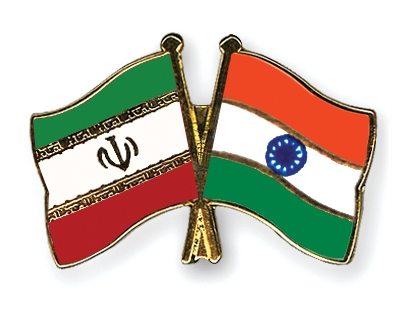UPDATES
India, the Delhi bombing and Iran sanctions
February 20, 2012 | Ahron Shapiro

The bomb attack on an Israeli diplomat’s car in New Delhi on February 13 by suspected Iranian operatives has opened a national debate among Indian commentators and lawmakers over the country’s close trading ties to Iran.
Unlike China, Iran’s other major trading partner, India maintains a close relationship with Israel as a top client of the Israeli defence industry, adding a layer of complexity to the situation.
Historically, Iran and India see each other as natural trading partners.
In January, India surpassed China to become Iran’s biggest oil customer. According to the Economic Times, India, which relies on imports to supply 80% of its petroleum needs, buys US $12 billion worth Iranian oil per year. In return, Iran looks to India to supply some 75% of the rice it imports, which itself represents half of India’s total rice exports.
India’s oil executives continue to resist pressure to source alternatives to Iranian crude. On February 17, Essar Oil, the second biggest Indian client of Iranian oil, announced plans to continue buying Iranian oil at current pace in the next fiscal year, Reuters reported.
This, in spite of the fact that sanctions have made it difficult for India to deliver payment to Iran for the oil. New Delhi has been forced to develop an elaborate system of trade and barter arrangements to pay for oil supplies.
India’s reluctance to jump on the sanctions bandwagon is largely based on its historic policy of non-alliance. As such, New Delhi has studiously avoided taking sides in Middle East disputes. As Ajith Vijay Kumar wrote this week for Zee News, this policy is intended to firewall the subcontinent from the turmoil to the northwest.
“The fountainhead of all that India worries about in the Middle East is the morbid fear that the bloody haze from there would travel eastwards to aggravate the situation in the Af-Pak region and eventually cross the Wagah border.”
As such, this week’s bombing has placed New Delhi in an uncomfortable position.
While a few voices in India, especially among the country’s minority Muslim community, have ducked the thorny issue of Iran by rejecting the prospect of Teheran’s involvement in the bombing entirely, most analysts were prepared to explore the question of what such an attack, if perpetrated by Iran, may mean for the future of Indian-Iranian ties.
Dr Ajai Sahni, executive director of the Institute for Conflict Management in New Delhi told India’s Zee News that while he suspected the attack had been perpetrated by Hezbollah, he did not foresee a change in India’s policies as a result of the bombing.
“Whatever the outcome of investigations, this single, relatively minor, incident will have no decisive impact on relations with either country. There is, at present, no quagmire here. There are certainly some tensions, and India has been managing these in the past. Unless there are extraordinary future developments, such as a rising wave of similar incidents, there is no reason to believe that India will be confronted with an intractable crisis.”
This sentiment has been echoed by some government officials.
However, Tridivesh Singh Maini, an Associate Fellow with The Observer Research Foundation in New Delhi wrote in The Diplomat this week that India may eventually be compelled to re-evaluate its longstanding policies regarding Iran, and plan accordingly.
“While the investigation is continuing, it’s imperative that India flesh out a clear strategy to deal with the enormous ramifications of increasing tensions in West Asia, especially in the aftermath of the Delhi blast. This will become all the more necessary if investigators find an Iranian hand in the blasts.
With Iran claiming Wednesday to have made significant advances in its nuclear program, pressure to snap ties with Iran will only increase on India. New Delhi has some tough decisions in the coming days and weeks ahead.”
A re-evaluation of India’s relationship with Iran can’t come soon enough for countries at the forefront of the campaign to isolate Teheran, such as the US.
In an editorial on February 16, the Wall Street Journal challenged India to stop “enabling” the mullahs.
“The real question for India is whether it is prepared to take its place as a responsible keeper of the world order. Or does it prefer to cast its lot, for the sake of a handful of rupees, with the spoilers of Moscow and Beijing?”
So what would it take to get New Delhi to break its Persian habit? A good read on the situation is offered by Hindustan Times blogger Pramit Pal Chaudhuri, who says
that the perception that India needs Iran is exaggerated, and that India’s policies are actually predicated on the role it sees for Iran in Middle East politics in the future.
“Why is India struggling to ensure relations with Iran aren’t deep-sixed? Partly because it sees the utility of Iran rising as the United States moves towards withdrawal from Afghanistan. Partly because it doesn’t want to be seen as following the US’s unilateral moves. But a lot of its motives lie in a belief that whatever happens Iran is heading to become the dominant power of the Persian Gulf in a decade or so. By then the US will not be the country most affected by disrupted oil and gas supplies through the Straits of Hormuz. It will be India and China. So keeping the Persians happy will be essential.”
The challenge for those seeking to isolate Iran would be to convince India to abandon that belief.
-Ahron Shapiro
Tags: India





